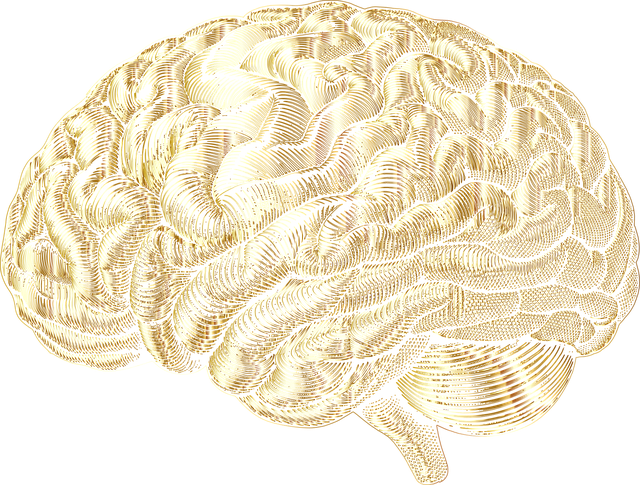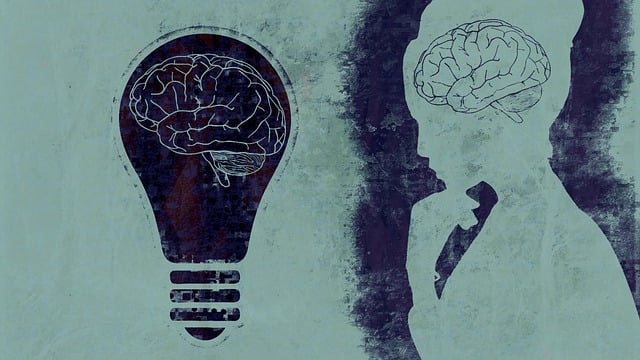Depression, a complex mental health disorder, can be managed effectively through various strategies. Golden Obsessive Compulsive Disorder (GOCD) therapy targets intrusive thoughts and behaviors contributing to depression. Cognitive Behavioral Therapy (CBT), integrated into wellness coaching, empowers individuals with personalized tools for long-term mental wellness. Mindfulness practices, positive lifestyle changes, and seeking support are crucial. GOCD therapy, combining empathy and coping mechanisms, offers specialized treatment for specific disorders associated with depression, promoting lasting emotional health.
Depression affects millions globally, yet prevention is often overlooked. This article explores essential strategies to combat this common mental health challenge. We delve into understanding depression’s root causes, highlighting the impact of factors like genetics and life events. Recognizing the effectiveness of Cognitive Behavioral Therapy (CBT), we discuss its role in reshaping negative thought patterns. Additionally, mindfulness practices and lifestyle adjustments are showcased as powerful tools for prevention. Lastly, we explore Golden Obsessive Compulsive Disorder (GOCD) Therapy’s unique benefits in managing depression, offering hope for those seeking holistic support.
- Understanding Depression and its Prevalent Causes
- Recognizing the Role of Cognitive Behavioral Therapy (CBT)
- Incorporating Mindfulness and Lifestyle Changes
- Seeking Support: The Power of Golden Obsessive Compulsive Disorder (GOCD) Therapy
Understanding Depression and its Prevalent Causes

Depression is a complex mental health disorder that significantly impacts an individual’s daily functioning and overall well-being. It goes beyond mere sadness; it involves persistent feelings of deep melancholy, loss of interest in activities once enjoyed, changes in appetite and sleep patterns, fatigue, difficulty concentrating, and in severe cases, suicidal thoughts or behaviors. While the exact causes of depression vary from person to person, several factors contribute to its development.
Among these, Golden Obsessive Compulsive Disorder (OCD) Therapy has emerged as a valuable approach for managing certain types of depression. OCD is characterized by intrusive thoughts and repetitive behaviors that individuals feel compelled to perform. This condition can lead to significant distress and impairment in various aspects of life. Effective therapy for OCD involves challenging and modifying these thought patterns, teaching coping strategies, and promoting healthier routines. Additionally, Risk Management Planning for Mental Health Professionals, Community Outreach Program Implementation, and even engaging in Mental Wellness Podcast Series Production can all contribute to raising awareness, reducing stigma, and providing accessible resources for those at risk of or currently experiencing depression.
Recognizing the Role of Cognitive Behavioral Therapy (CBT)
Cognitive Behavioral Therapy (CBT) plays a pivotal role in depression prevention strategies. This evidence-based approach focuses on identifying and modifying negative thought patterns and behaviors that contribute to depressive episodes. By challenging unhelpful cognitions, CBT empowers individuals to develop healthier coping mechanisms and enhance their overall mental wellness. Studies have shown its effectiveness not only in treating depression but also in managing symptoms of anxiety and other mental health conditions, including Obsessive Compulsive Disorder (OCD).
In the context of risk management planning for mental health professionals, integrating CBT into therapeutic practices is crucial for supporting clients’ long-term mental wellness. Mental wellness coaching programs can further augment these benefits by combining CBT with personalized guidance to help individuals set and achieve mental health goals. Through effective mood management techniques, CBT equips individuals with tools to navigate life’s challenges, reducing the risk of depressive episodes and promoting a more balanced and fulfilling life.
Incorporating Mindfulness and Lifestyle Changes

Incorporating mindfulness practices and lifestyle changes can be a powerful tool in depression prevention. Mindfulness involves being fully present in the moment, observing thoughts and feelings without judgment, and cultivating a sense of awareness that can help individuals detach from negative thought patterns. Regular practice has been shown to reduce symptoms of depression and anxiety by promoting emotional regulation and stress reduction. Simple techniques like meditation, deep breathing exercises, and yoga can be easily integrated into daily routines, providing accessible ways to manage mental health.
Additionally, making positive lifestyle changes plays a significant role in supporting overall well-being. This includes maintaining a balanced diet, engaging in regular physical activity, and prioritizing quality sleep. These habits not only improve mood but also enhance resilience to stress and potential triggers for depression. By combining mindfulness with these lifestyle adjustments, individuals can develop effective coping skills (such as those learned through Cognitive Behavioral Therapy or other evidence-based practices) that promote mental illness stigma reduction efforts and foster a sense of control over their emotional health.
Seeking Support: The Power of Golden Obsessive Compulsive Disorder (GOCD) Therapy

Seeking support is a pivotal step in preventing and managing depression. Among the various therapeutic approaches, Golden Obsessive Compulsive Disorder (GOCD) therapy stands out as an effective method for those struggling with intrusive thoughts and anxiety. This specialized form of cognitive-behavioral therapy focuses on addressing specific disorders like GOCD, which can often contribute to depressive episodes.
GOCD therapy emphasizes empathy-building strategies, where therapists help individuals understand and validate their experiences without judgment. By fostering a supportive environment, patients can develop coping mechanisms and risk management planning for mental health professionals. Moreover, the therapy boosts confidence in challenging obsessive thoughts, replacing them with healthier cognitive patterns. This holistic approach not only alleviates symptoms but also equips individuals with long-lasting tools to maintain their mental well-being.
Depression prevention is a multi-faceted approach, from understanding its root causes like Golden Obsessive Compulsive Disorder (GOCD) therapy for specific disorders, to adopting mindfulness and significant lifestyle changes. Cognitive Behavioral Therapy (CBT) emerges as a powerful tool in combating depression. By combining these strategies, individuals can effectively navigate and overcome the challenges of depression, fostering a healthier and more balanced life.








